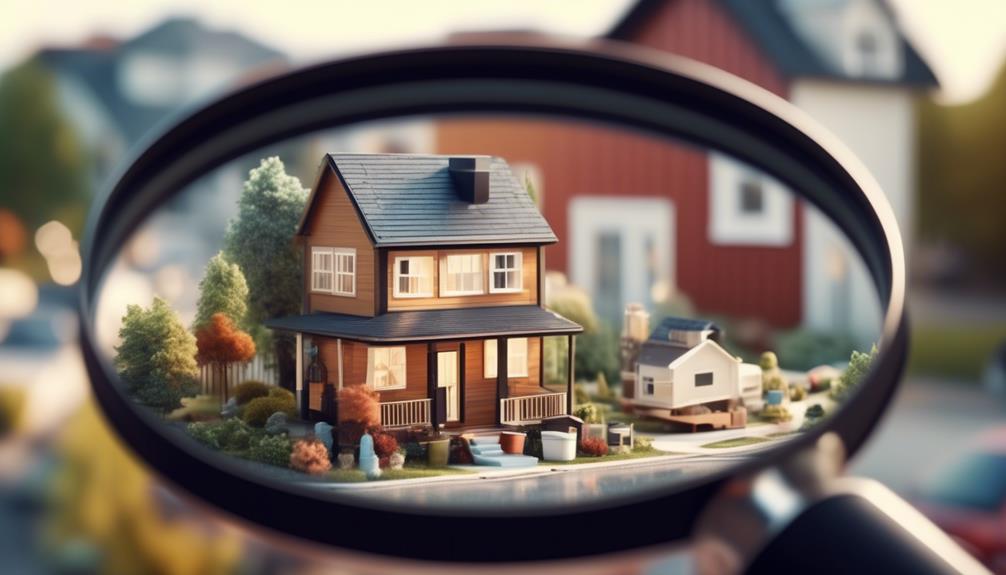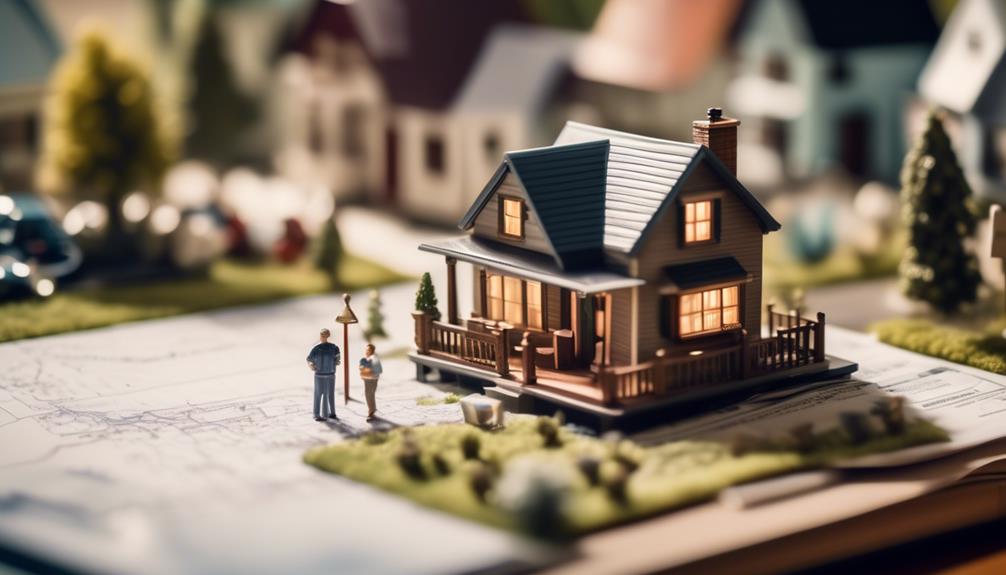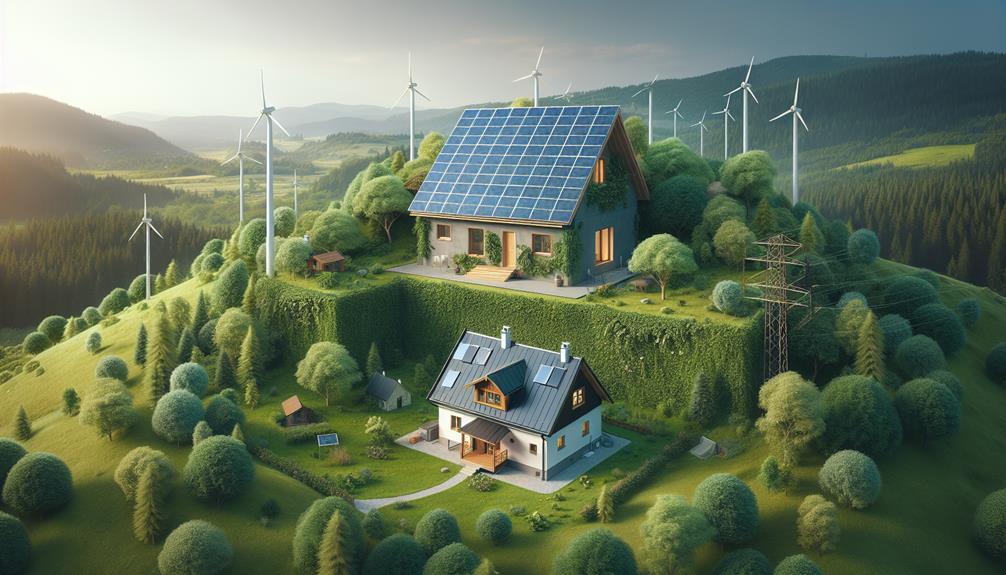As you stand on the precipice of the tiny home revolution, you're faced with a decision that's as much about your values as it is about your wallet. You've seen the charming pictures: miniature houses that promise a life unencumbered by the chains of excess space and possessions. But you're not one to leap without looking, and the question nags at you: are these compact abodes truly worth the investment?
While the initial cost may be a fraction of a traditional home, you're savvy enough to know there's more to consider than the price tag. You ponder the resale value, long-term savings, and the freedom versus limitations such a unique lifestyle entails. As you weigh the potential for a simpler life against the practical realities, you find yourself wondering if a tiny home might be the smartest financial move you could make—or a decision you might come to regret.
What you discover next could tilt the scales, but only if you're prepared to examine the intricacies of going small in a big way.
Key Takeaways
- Tiny homes offer a minimalist approach to living, catering to individuals seeking to downsize and optimize functionality.
- Upfront costs for tiny homes can vary, including the cost of the house itself, land purchase, permits, and customization.
- Resale value of tiny homes can be influenced by market demand trends, location, and upgrades, similar to traditional homes.
- While tiny homes may not typically appreciate in value due to limited market demand, they can offer long-term financial stability and be part of a diversified investment strategy.
Understanding Tiny Homes
To fully grasp the concept of tiny homes, it's essential to recognize them as more than just diminutive structures; they embody a distinct approach to living that comes with a unique set of financial and lifestyle considerations.
As you explore the trend, you'll find tiny homes are built with a minimalist ethos, often occupying a mere 225 to 600 square feet. Tiny home builders cater to innovative individuals seeking to downsize their physical footprint while optimizing functionality.
Whether you're inspired by 'Tiny House Nation' or considering an Accessory Dwelling Unit (ADU) for your property, building a tiny house involves navigating zoning laws and wrestling with tiny home costs.
Despite their charm, living in a tiny space requires a comprehensive evaluation of potential challenges, including alterations in family dynamics and personal well-being.
Analyzing Upfront Costs
When considering a tiny home, it's crucial to assess the initial investment, which includes not only the cost of the structure itself but also the expenses for land, permits, and potential customization.
Here's a breakdown:
- Tiny House Cost: Median price is about $45,000 but can swing from $28,000 to over $150,000, influenced by size and design complexity.
- Purchase Land: Depending on location, this can be a significant portion of the upfront costs, challenging the affordability of a tiny home.
- Permits and Licenses: Fees vary widely and are subject to local real estate regulations.
- Additional Expenses: Customization, essential items not included in kits, and choice of foundation all contribute to the final tally.
Assessing Resale Value

When you consider investing in a tiny home, you must weigh the resale value, which often doesn't follow the traditional appreciation trajectory of standard-sized homes.
Market demand trends play a significant role; a niche buyer pool and the trend toward minimalism can influence your home's future worth.
You'll find that location, upgrades, and the push for sustainable living critically impact the resale value of your tiny home.
Resale Value Factors
Understanding the resale value of a tiny home involves examining market trends, location desirability, and the quality of home enhancements. Here are critical resale value factors that can influence your investment:
- Market Trends: Tiny homes often appreciate in value alongside rising interest in minimalist and sustainable lifestyles.
- Location: A tiny home built in a desirable neighborhood may build equity similarly to traditional homes.
- Quality of Construction: Companies like Tumbleweed Tiny House Company focus on craftsmanship, which can positively affect resale value.
- Energy Efficiency: High energy efficiency is synonymous with a sustainable lifestyle, making such tiny homes more attractive to future buyers.
As you delve into the tiny home market, remember these factors to maximize your investment's potential for appreciation.
Market Demand Trends
Assessing the resale value of a tiny home requires careful consideration of market demand trends, which vary significantly by location and are often shaped by local regulations and cultural attitudes. Unlike traditional homeownership, tiny homes don't typically appreciate in value due to more limited market demand. This investment is more about lifestyle choices featured in shows like 'Tiny House Big Living' rather than building equity.
When you're considering selling, remember that a tiny home, particularly if classified as a Recreational Vehicle or manufactured home, depreciates over time. Your tiny home is essentially personal property, not real estate. Thus, recouping costs can be challenging. The market dictates value, and for tiny homes, it's niche—your resale success hinges on finding a buyer aligned with the specific tiny living ethos.
Long-Term Financial Impact
Considering a tiny home as a long-term investment requires analyzing how its value may appreciate, factoring in market trends, location, and potential for upgrades. To embrace the tiny house lifestyle and understand the financial impact, consider the following:
- Affordability: The cost of a tiny is generally lower than traditional homes, potentially allowing you to save money or avoid a traditional mortgage.
- Interest Rates: While tiny houses may attract higher interest rates, comparing lenders can mitigate this impact.
- Ongoing Costs: Tiny houses often have lower ongoing costs, which can improve long-term financial stability.
- Investment Diversification: As part of a diversified investment strategy, a tiny home can balance your portfolio, offering both a sustainable living option and an opportunity for rental income.
Legal and Zoning Considerations

Navigating the complex landscape of zoning laws, you'll need to diligently research and comply with local regulations to ensure your tiny home investment doesn't hit legal snags. Legal and zoning considerations are paramount; as not all laws allow for tiny house living in every area. The size of the lot, whether you plan to build (or park) on a foundation, and if the tiny home is a mobile unit or primary residence, all influence where you can locate your home.
Engaging with the Tiny Home Association of Home Builders can provide insights into navigating these regulations. Additionally, understanding if your land is zoned for a mobile home versus a permanent structure is crucial. By staying informed, you ensure your foray into tiny house living aligns with legal frameworks, keeping your innovative lifestyle choice on solid ground.
Alternative Living Comparisons
While understanding legal and zoning issues is crucial for tiny home ownership, it's equally important to weigh how these homes stack up against other alternative living options in terms of cost, lifestyle, and investment potential. Consider the following:
- Price Tag: Tiny homes often have lower initial costs than traditional houses, but it's vital to note potential land rental fees and customization costs.
- Home Design and Floor Plans: Tiny House, Big Living enthusiasts value innovation; these compact designs can challenge traditional home design norms, maximizing space efficiency.
- Investment Potential: A tiny home's worth can appreciate, especially if it taps into trends favoring minimalism and eco-consciousness, which can attract a niche market.
- Ecological Footprint: Compared to conventional homes, tiny homes typically have a smaller ecological footprint, aligning with a growing demographic prioritizing sustainability.
Frequently Asked Questions
Is It Worth It to Invest in a Tiny House?
You'll face space constraints and zoning issues, but investing in a tiny house offers a lifestyle shift, mobility benefits, and a reduced environmental impact, along with creative storage solutions and off-grid potential.
What Are the Downsides of Tiny Homes?
You'll face limited space, zoning challenges, and lifestyle adjustments with tiny homes. Resale concerns, financing difficulties, minimal storage, and social perception issues arise, alongside building codes, utility constraints, and climate adaptability considerations.
Do Tiny Homes Actually Save Money?
Do you crave financial freedom? Tiny homes champion a minimalist lifestyle, offering space efficiency and lower utility costs. Despite zoning challenges, their design creativity and mobility benefits promote sustainable living and a smooth downsizing transition.
Do Tiny Homes Hold Value?
You'll find tiny home depreciation varies with market trends. Resale challenges and customization limits exist, yet design appeal and a minimalist lifestyle reduce your ecological footprint, adding to investment diversity despite location dependency and zoning restrictions.
Conclusion
In the tapestry of housing, tiny homes are a vibrant thread, offering a smaller environmental footprint and financial liberation. But like any abode, they're not one-size-fits-all. Weigh their cozy charm against legal intricacies and potential resale hurdles.
If your heart's set on minimalist living and you've navigated zoning mazes, this investment can weave a fulfilling narrative of simplicity and sustainability into your life's story, proving that sometimes, less is indeed more.

